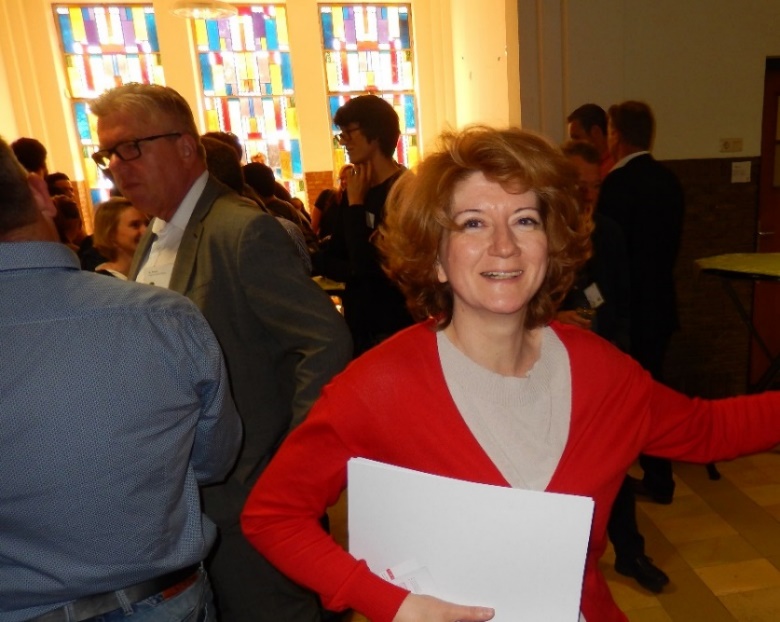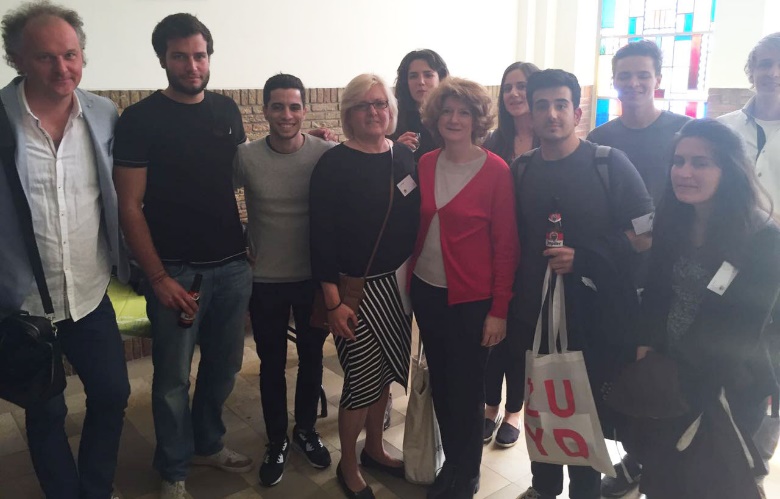
GTB Lab’s second symposium, “Reversible Building Design”, took place June 10, 2016 in Maastricht at Brusselseweg 150 of Zuyd University.
Approximately 90 participants attended the International symposium. Many international guest (researchers and students) as well as participants form the building industry gathered around the Laboratory for Green Transformable Buildings (GTB Lab).
The program consisted of 3 parts; a general introduction; a morning session with speaker presentations on the vision and research of Reversible Building Design; an afternoon session with speaker presentations about the practical implementation of Reversible Building Design.
De Groot Vroomshoop Groep incl Finch (004) 09062016ws
Galle-w-2016-scenario-development-for-life-cycle-design-presentation (1 MB)
Maastricht Presentation UK Housing Typologies WP3
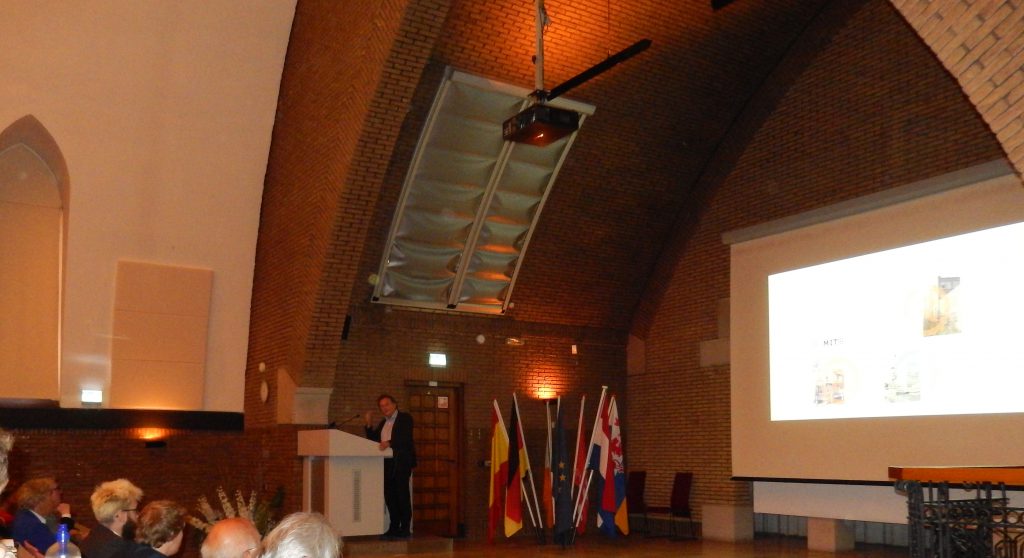
Prof. Jo Coenen, architect, director IBA Parkstad 2020
Introduction
After Opening Remarks were made by Martin de Beer, Alderman of economy for the city of Heerlen Prof. Jo Coenen. Gave a general introduction to the symposium.
Morning session – VISION
Founder/chief architect of the Laboratory for Green Transformable Buildings and research leader of EU BAMB Reversible Building Group at the University of Twente, Dr. Elma Durmisevic presented her vision on Reversible Building Design. Dr. Elma Durmisevic stated that “construction and demolition waste is a design mistake. The future value of a building depends on its Transformation Capacity and Reuse Potential.”
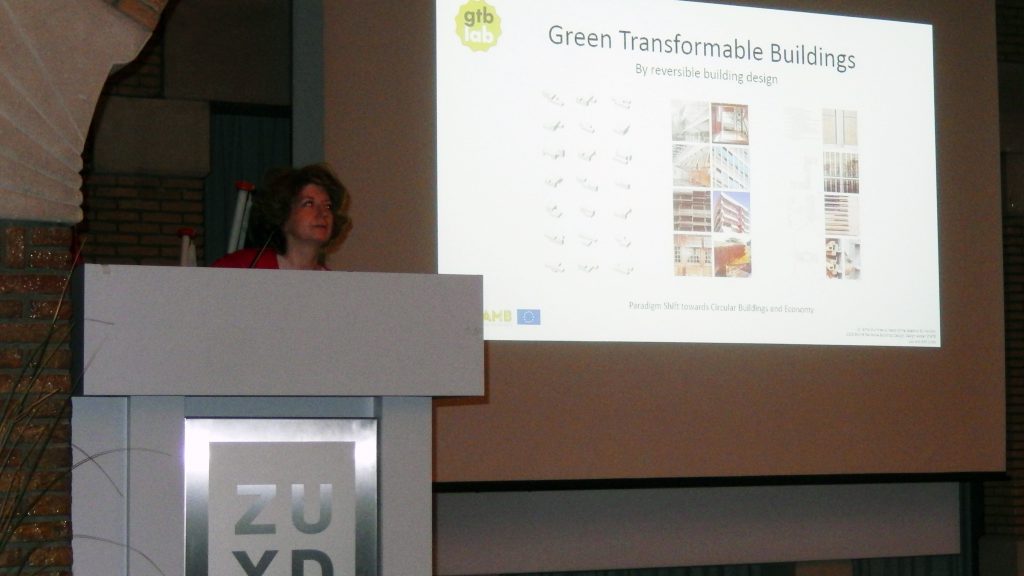
Dr.Elma Durmisevic, Founder of Green transformable Building Lab
After introduction lectures, researchers and PhD students presented ongoing research and findings relevant to the reversible building design agenda.
Eliot Beeby, Graduate Consultant at BRE presented a survey on residential typologies and construction methods in the UK. This survey will help identify major barriers for the implementation of circular building strategies at the moment.
Katherine Adams, PhD Researcher at BRE presented state of the art regarding contruction and demolition waste management and wasteflows in the UK.
Mieke van den Broucke presented her PhD research at the Vrije Universiteit Brussel for which she developed a tool that could help designers improve the reversibility of their designs.
Waldo Galle talked about his PhD research findings showing the cost benefits of reversible design solutions and how to measure them.
François Denis presented his research on how designers could use BIM to analyse designs for reversiblity. He promoted the idea that one should first optimize the ‘passive’ qualities that make for reversible buildings and then apply ‘active’ or technical design solutions for further optimalization.
Afternoon session – IMPLEMENTATION
The afternoon session started with a short talk by Prof. Jan Brouwer, founder of Building Technology at the Delft University of Technology. He stated that in designing for reversibility it is still very important to consider the ten commandments of Architecture with a capital A.
Second afternoon speaker was Nielas Leijten, director of Ammanu company. He presented Ammanu’s ideas on Led Inteligence. He highlighted the fact that with the state of current technology it is possible to make products that last and can be easily updated (as light fixtures) during their lifetime reusing materials and components that minimize waste and energy consumption.
Third speaker of the afternoon was Wim Sturris director of the system building division of DeGroot Vroomshoop. He presented the ‘Finch’ module; a timber plug and play modular building of 25m2. The system is developed around a takeback business model.

Students and professors of Reversible Buildings – International Design Studios form Istanbul Technical University, University of Sarajevo and University of Twente.
The second part of the afternoon focused on presentations of three design studios by 25 students form University of Twente, Istanbul Technical University and University of Sarajevo. Four international, multidisciplinary design groups presented their design proces and how this led to their design solutions for the transformation models that can be implemented into a Green Transformable Building Lab at Avantis/De Wijk van morgen.
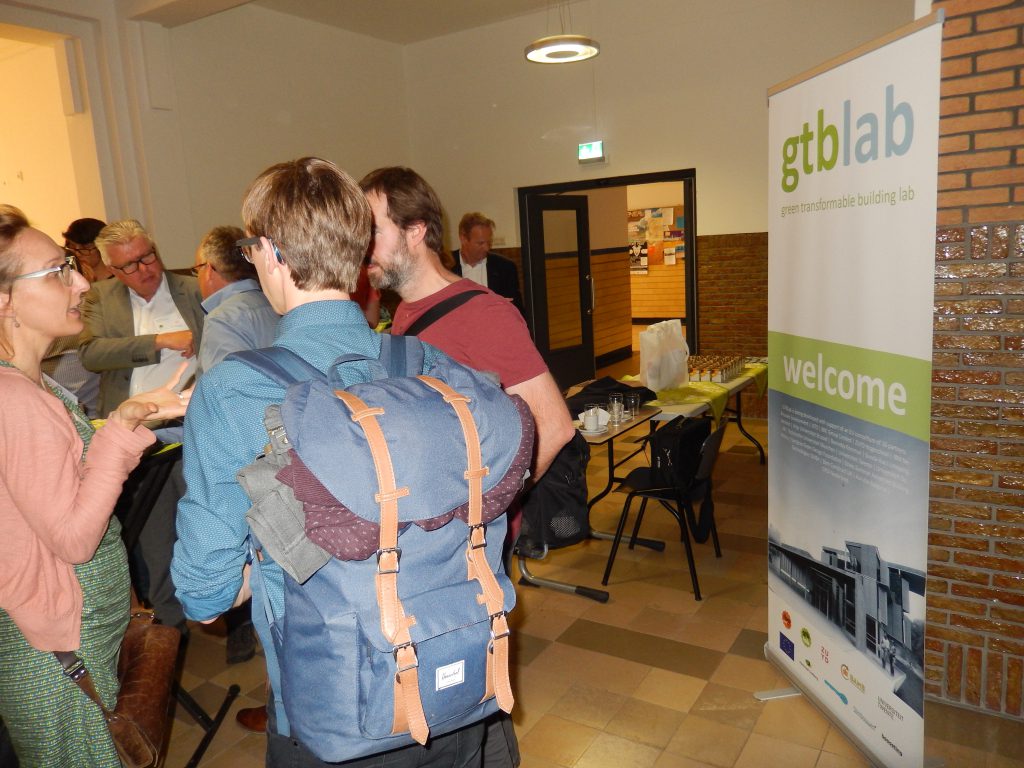
Thank you for joining us in Maastricht this year!
